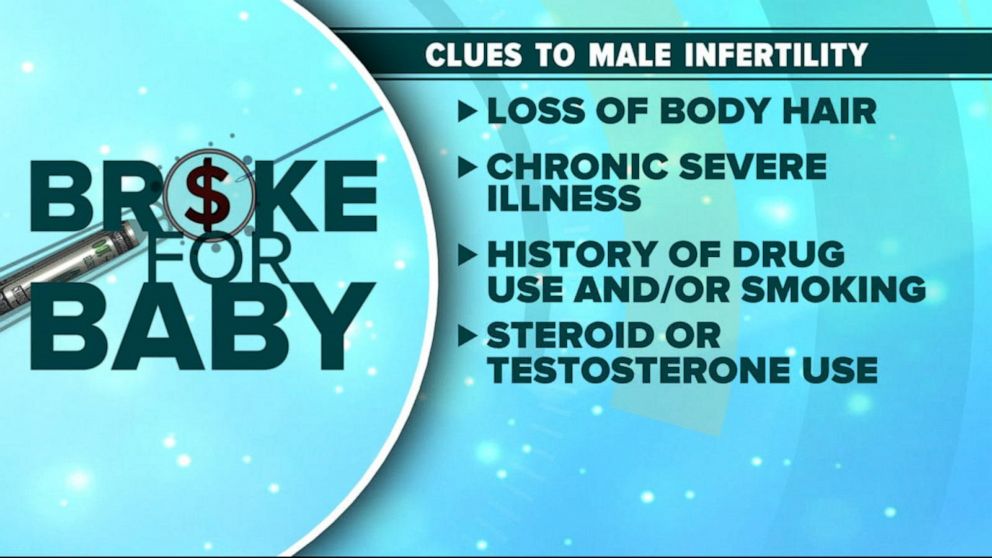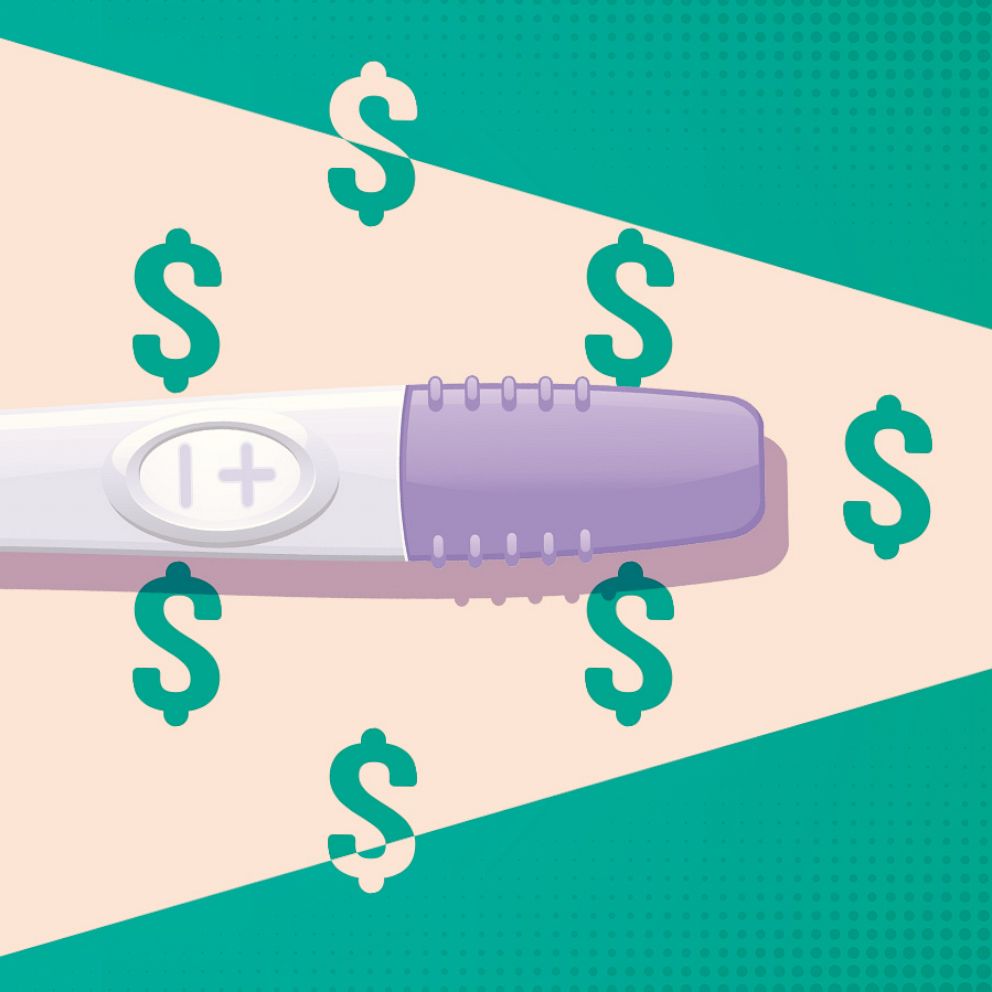What to know about male infertility, from causes to treatment options
In about 8% of couples, a male factor is the only recognizable cause.
Nearly one out of every eight couples in the U.S. are affected by infertility. For National Infertility Awareness Week, “GMA” is spotlighting infertility stories to help demystify and destigmatize all paths to parenthood.
While women often bear the brunt of infertility -- from treatments to testing -- infertility is not just a female issue.
In around 35% of couples with infertility, both the man and the woman are contributing factors. In about 8% of couples with infertility, a male factor is the only recognizable cause, according to the Centers for Disease Control and Prevention (CDC).
Candace and Timothy Farris, of Gilbert, Arizona, learned they were one of the 8% after trying for many years to have a baby with no success.
Doctors discovered noncancerous growths in 34-year-old Candace's uterus but then, after further testing, turned their attention to Timothy's fertility.

"When the doctor said that [Candace's noncancerous growths] weren't in a place that was prohibiting a pregnancy, her doctor actually said, 'Well, you know what? Let's have Tim checked out,'" Timothy recalled. "What I had was called poor motility and poor mobility. Over time, my [sperm] count did continuously decrease."
Timothy underwent surgery to improve his blood flow but the surgery was not a success. The couple endured two failed fertility treatments and one failed round of in vitro fertilization (IVF).
Their second round of IVF ended in a viable pregnancy for Candace, who gave birth to their daughter Victory last December. The couple estimates they've spent around $150,000 on treatments over the past decade.

"When we first got married, I heard the name Victory 10 years ago and I was like, "Oh, that's such a beautiful name,'" Candace said. "And then after a 10-year struggle the name has so much more meaning because it's literally a victory after everything we've gone through."
"We've got our sweet Victory," she added.
What causes male infertility?
Male infertility can be caused by everything from certain medications and supplements to unhealthy habits like smoking that lead to "disruption of testicular or ejaculatory function," according to the CDC.
Trauma to the testes, some cancer treatments and some medical conditions like diabetes and cystic fibrosis may also cause testicular failure. Male infertility can also be caused by hormonal disorders or genetic disorders that may cause little or no sperm to be produced.

How is male infertility detected?
Male infertility is typically detected through a semen analysis that assesses the number of sperm, their movement and their shape, according to the CDC.
What are the treatment options for male infertility?
The cause of male infertility will determine the type of treatment, which can include medicine, surgery or therapies like intrauterine inseminations (IUIs) or in vitro fertilization (IVF).
Editor's note: This story was originally published on April 23, 2019.







